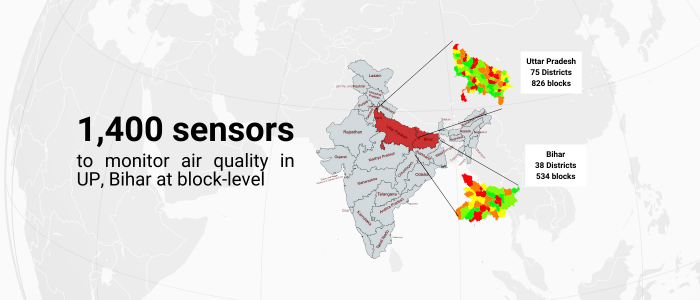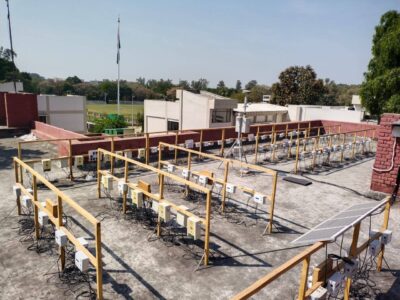Ambient air quality Monitoring over Rural areas using Indigenous Technology



Project AMRIT is India's first, largest rural air quality monitoring network. It is a flagship project of the Centre of Excellence ATMAN, a world-class research centre established at IIT Kanpur in October 2022 as proposed by the Office of the Principal Scientific Advisor, Government of India.
The project aims to monitor the air quality across Indian states for better air quality policies. In its first phase, the sensor-based air quality monitoring network will be deployed across Uttar Pradesh and Bihar, two of India's most polluted and populated states that lie in the Indo-gangetic plains (IGP).
Key objectives include:
1. Establishing a sensor-based monitoring network for monitoring and management of air quality in rural areas.
2. Creating micro airsheds within the different states for effective air quality management
3. Comparing data with emission inventories, source attribution analysis and pollution models over different states.
4. Development of novel tools for data mining, network calibration, data visualizations and interpretation.
5. Enable awareness and education programs on air pollution and health for rural areas of Indian States.
If you have any questions or need help, feel free to contact with our team.
302, Rayaba, Vidhate Business Park,
New DP Rd, Aundh, Pune 411007, India
©2022 Respirer Living Sciences Pvt. Ltd., All Rights Reserved.

